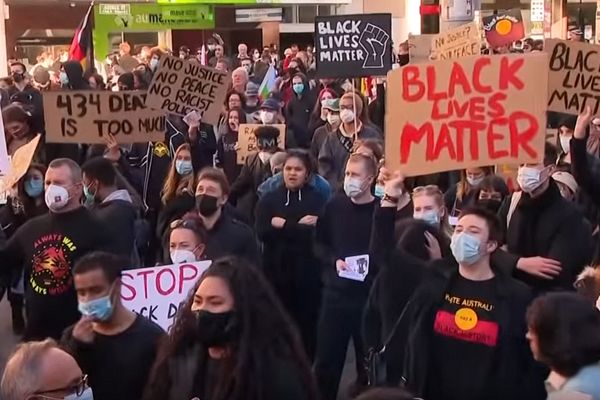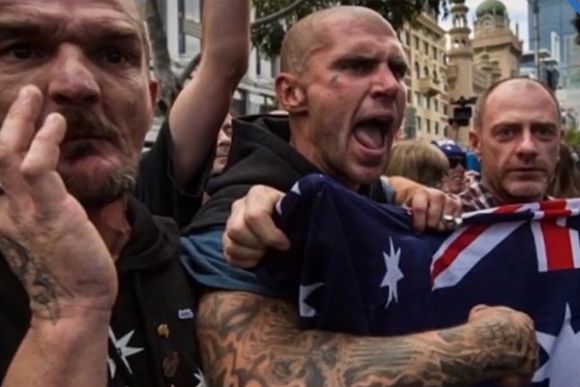It takes real empathy for the plight of minorities and not just simple awareness to be a true advocate for the fight against racism, writes Marie M’Balla-Ndi Oelgemoeller.
AS RACIAL INEQUALITIES, abuses and violence continue to be at the forefront of many of today’s societal discussions, the term “ally” is often used. The concept seems to carry the promise of a robust network that will support visible minorities abused on a daily basis and claiming their rights to live as safely and with as much dignity as anyone else.
Across the world, people are called upon to be above racism; they should be anti-racist, or better, they need to become good “allies”. Yet, Black people have supposedly had allies since the late 18th Century. Haven’t they? Going back to the abolition of slavery, some of the Black people’s allies were notable people at the highest levels of democratic societies. More than two centuries later though, Black people are still not getting equal opportunities, or seen as equals to Caucasians. It begs the question: where are we getting it wrong with this fight against racism, as a society, as individuals and as so-called allies?
On being Black, White and all shades in between
In late March 2021, Buffalo 97 Rock’s Morning Bull radio show DJ Rob Lederman was fired after a remarkably shocking on-air attempt to compare toaster settings to the darkness of the skin tone of women he “would be comfortable with”, citing three famous Black women.
Race, as a social construct, has serious implications for those marked by any shade outstanding a prevalent whiteness, those whose skin tone distinguishes them from the (in)visible majority. But being White is also a mindset, that of a dominant mass normalising the experiences of racialised people. As half Black and half Caucasian, I know that for some Caucasians who read these words and share Lederman’s mentality, I am likely too black to relate, but for a number of Black people, I am also just not black enough to even speak up about issues of racism.
In his recent book, La Pensée Blanche (The White Thought, in English), Guadeloupean retired soccer player Lilian Thuram explains how racism stretches beyond skin colour; Black people can think in a very “White way” too, he suggests. La Pensée Blanche was received as an anti-White manifesto by many but was defended by the author and others who read the book as rather conceptualising complex aspects of racism and suggesting that for people, regardless of their skin colour, “being White” is better.
In 1988, British scholar Richard Dyer wrote an essay titled White, which argues that:
‘...white power secures its dominance by seeming not to be anything in particular, but also because, when whiteness qua whiteness does come into focus, it is often revealed as emptiness, absence, denial or even a kind of death.
...white is no colour because it is all colours.’
This resonates with what Thuram argues and he may be onto something society needs to acknowledge more.
Being White is also about leaving the status quo (and obvious injustices) unchallenged. It can be this Caucasian friend, or even Black relative, who deeply cares about you, but who will tell you to just “get over it” that “it is not worth it” when you tell them about the latest public display of racial discrimination you suffered.
The majority has, in fact, been reinforced by members of the minorities, for they share a mindset (often referred to as “colonial mentality”). Being White, as a mindset, is powerful enough for various visible minorities to turn against one another despite a shared experience of social discrimination and racial oppression. Some Asian people show their “whiteness” in their anti-Black behaviour and some Black people theirs in their discrimination of other Black people – darker or lighter – or of White people and so on. This makes one wonder about the degree of hope we put into the concept of allies.
So-called allies
I recently realised how much time and perseverance it can take to – unsuccessfully – explain to friends why I should not just “get over” any racial discrimination I experience. In my experience, turning friends into true allies is overwhelming, to say the least. So, where do we start with the rest of the world? This is a burden (and I am weighing my words here) I do not have to carry in this fight, not after centuries of documented oppression, discrimination and harassment.
Don’t get me wrong, some allies do get it right but political discourses, public debates, ads, campaigns, diversity training and educational initiatives are, for most, mainly rationalising racism and anti-racism. Allies often “act” on the knowledge that racism is wrong because they’ve been told and taught so. When I ask those I call friends (who surely see themselves as allies) why racism is wrong, they have the perfect textbook answer for me, but not the one that tells me that they “get it”.
Is it even possible to explain to someone who has never personally experienced (not just witnessed) racism the deepest impact it has on our souls, the shame and humiliation we are made to feel because of the skin we were born in?
What it “feels like” to not be White
Educational efforts and initiatives aiming to target racism must address allies’ lack of shared experience more effectively.
A boy barely older than eight years old once genuinely asked me: “How does it feel to be Black?” Lately, I have reconsidered this question a lot. While I welcome strong calls for the next generation to be taught more than not to be racist, I also think the issue of race in contemporary society must be better illustrated to those who simply have no idea what it feels like to be Black, Asian, or just not White.
Discourses on equality, human rights and politics can sometimes overshadow one aspect of racism that speaks to all: the hurt and pain it causes, the human impact of racism, especially when it comes to those surviving racism.
When allies join in movements calling out racism, are they doing so because they’ve finally gained awareness of this? Do they fully understand the impact of pure hatred that blinds someone looking at people like me as if we were just abhorrent insects? Have they been exposed to knowledge enabling them to understand the agony of the constant battle people who are not Caucasians have to fight to live, sometimes survive, nowadays? Or are they just becoming “allies” because it is the right thing to do?
Respectfully, allies, this is not a good enough reason. It is not until allies understand the pain racism causes at its core and when their allyship is fuelled by what it means, that they will be able to fight hard enough to win this hundred-year-long battle.
Being a visible minority experiencing racism in this world is not only about the fear of being discriminated against or being unsafe, about not getting a job over a Caucasian competitor, being arrested unfairly or shot down in the street for no other reason than looking suspicious. Racism is all that, but also about the pain it causes on a deep, personal and individual level, often on a daily basis. A pain that goes to bed with you, that haunts your thoughts and often brings a shadow on what could be moments of unalloyed happiness — such as graduations and childbirth.
Many of us (the minorities) try our best to proudly hide this pain when facing tirades of racial slurs in public places. It makes our guts twist and turn on the inside but it also gives us a strength and a power nothing else can. That’s a strength we need all allies to be able to understand and channel in order to become an alliance powerful enough to provoke change alongside ongoing initiatives.
Tips for allies:
- make educating yourself your own responsibility;
- do not discredit people’s feelings and experiences of racism based on your (in)experience of it as an ally;
- challenge the status quo every time you can; racism is systemic, it does not rest, Black people are black 24/7, an ally should be one 24/7;
- be loud about your allyship and make sure your actions match your words; and
- last, but not least, understand you are not a hero for being an ally; you are just a human doing the right, decent thing.
Marie M’Balla-Ndi Oelgemoeller is a Franco-African journalist and a media scholar. She holds a PhD in International Journalism and teaches and researches journalism at James Cook University (Townsville). You can follow Marie on Twitter @Marie_MBallaNdi.
Related Articles
- Death by design: Systemic racism and police brutality in the U.S. and Australia
- Racist hate crimes targeting Sydney's Indigenous homeless
- #RacismNotWelcome campaign a visible sign of the times
- Students' racist slurs outrage community
- Raising anti-fascism awareness is the key to ending White supremacy
 This work is licensed under a Creative Commons Attribution-NonCommercial-NoDerivs 3.0 Australia License
This work is licensed under a Creative Commons Attribution-NonCommercial-NoDerivs 3.0 Australia License
Support independent journalism Subscribe to IA.














